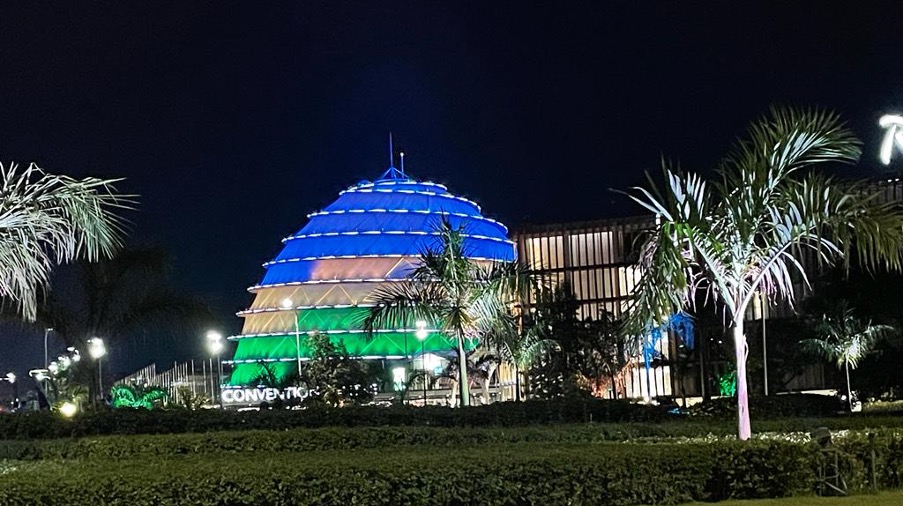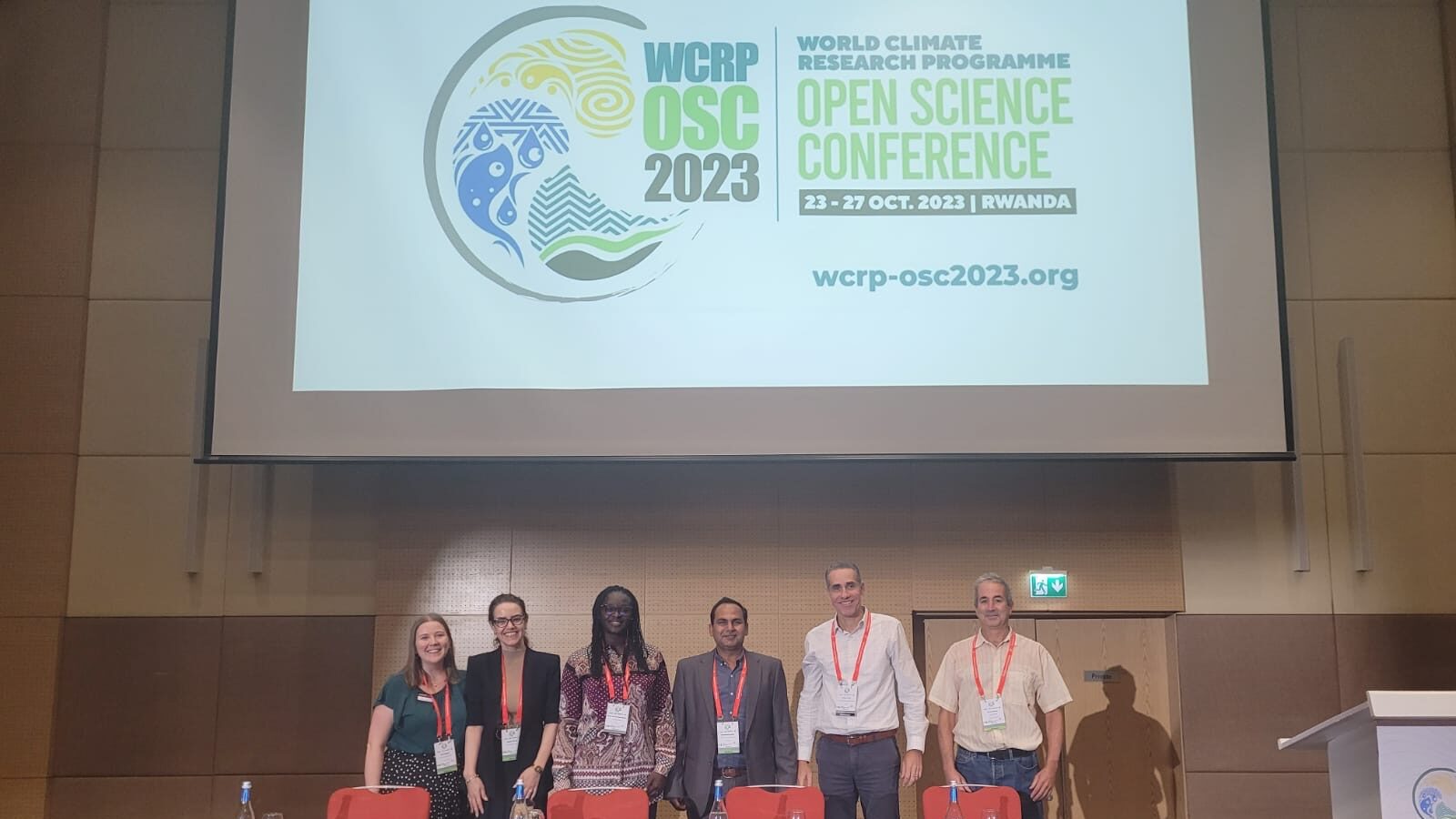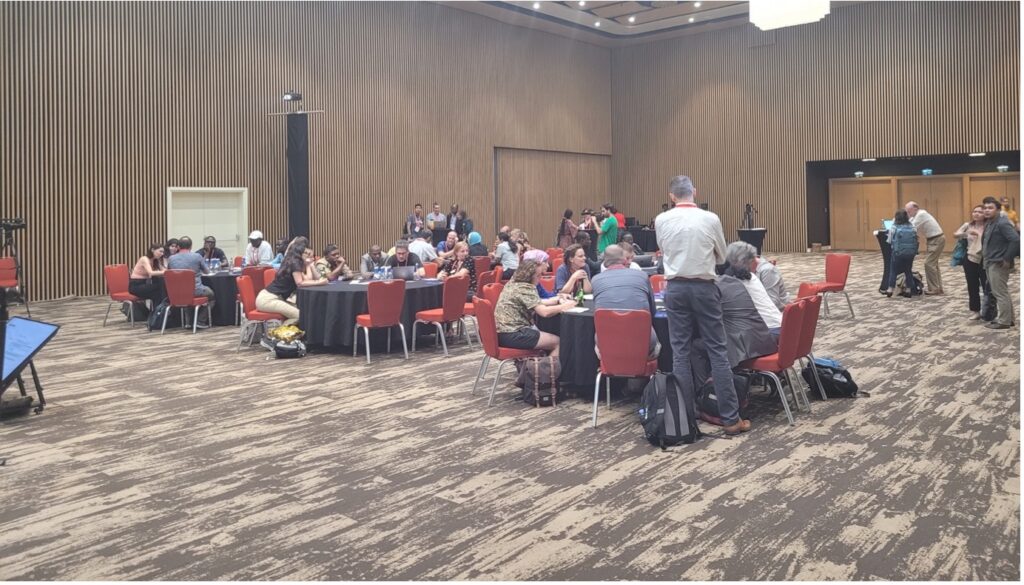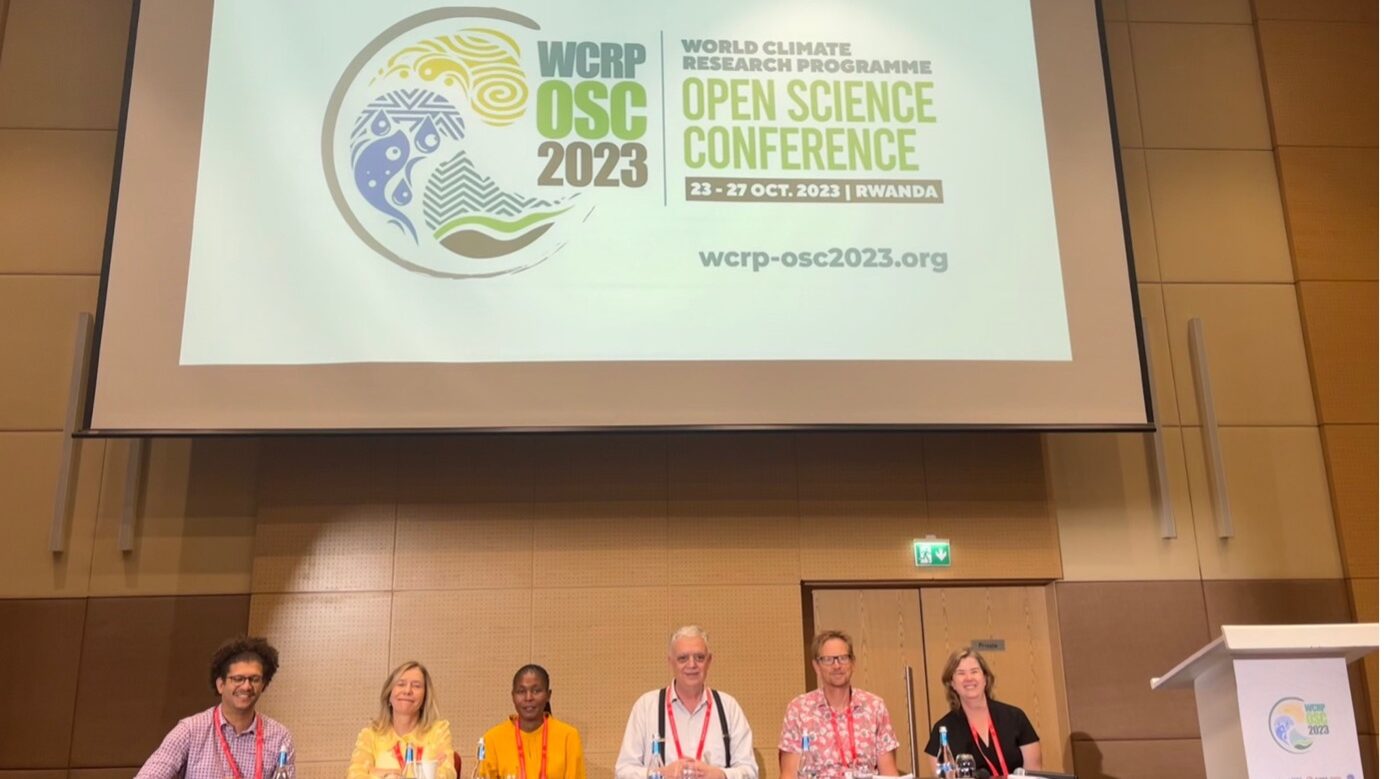
The World Climate Research Programme’s (WCRP) Open Science Conference (OSC) was held in Kigali, Rwanda at the end of October. This once in a decade event welcomed more than 1400 scientists, practitioners, policymakers, and intergovernmental agency workers, over half of which attended in-person in Kigali.
The five-day conference saw dozens of presentations across daily plenaries and 40 parallel sessions covering the three conference themes: Advances in Climate Research; Human Interactions with Climate; and Co-produced Climate Services and Solutions. The conference was opened by the Rwandan Minister of Environment Jeanne d’Arc Mujawamariya, who highlighted Rwanda’s commitment to climate research and action during the opening ceremony.
The CMIP community was well represented across the conference. Julie Arblaster and Robert Pincus, two members of the CMIP Core Panel, attended the conference in-person to give an update on CMIP to the WCRP community, alongside CMIP7 Task Team co-leads Birgit Hassler, Forrest Hoffman, and Isla Simpson. In addition, three members of the CMIP International Project Office (IPO) and dozens of Task Team and Fresh Eyes on CMIP members attended the conference.
The CMIP IPO organised three exciting side events during the OSC and co-organised a side event with the CORDEX IPO.

The first event – ‘Equitable access to climate modelling data’ – was run by four members of the CMIP7 Data Access Task Team: Lincoln Alves, Nana Klutse, Muhammad Amjad, and Luciana Prado on Monday lunchtime. This event was highly interactive, with excellent feedback given by the participants on the barriers they experience when accessing CMIP data. A large emphasis was placed on the need for improved community training and better data documentation to make data access easier. A few participants also raised that the ability to subset data before downloading would also address the bandwidth and storage restrictions they can face.
On Monday evening, we met again to co-run the event ‘CMIP and CORDEX evaluation and analysis tools’ with the CORDEX IPO. This event had excellent attendance with participants looking to learn about and watch demonstrations for different available tools which might be useful for their work. Beth Dingley (CMIP IPO) and Grisha Nikulin (SMHI) started the event with overviews on CMIP and CORDEX data, followed by an overview from the recent Climate Resilient Development for Africa (CRD4Africa) meeting by Nana Klutse. A number of different tools then gave a short pitch to participants to encourage them to come to their demo table later in the session. We were lucky to have in-person demonstrations from ESMValTool, Climate and Agriculture Risk Visualization and Assessment (CAVA), the CMIP6 for CORDEX Toolkit, the IPCC WGI Interactive Atlas, Copernicus Climate Change Service (C3S), the Climate Information Portal as well as three online presentations from Pangeo, XMIP, and NOAA’s Model Diagnostics Task Force Framework.

Our third side-event was a fascinating panel discussion titled ‘Addressing barriers to a diverse and inclusive climate modelling community’. We were delighted to have Julie Arblaster chair the discussion, with WMO Secretary General elect Celeste Saulo (WMO), Brazillian climate modeller Paolo Nobre (INPE), regional climate modelling expert Masilin Gudoshava (IGAD), extreme weather modeller Izidine Pinto (KNMI), and idealised climate modeller Adrian Tompkins (ICTP) joining the panel. Discussions were varied, but focussed on whether the community has become more diverse in the past decade and what those in well-resourced institutions can do to drive progress. We also learned about the inspirational careers of the different panel members which have allowed them to rise to their current positions.
Our final side event of the week was held on Wednesday lunchtime addressing how to strengthen the observational-modelling interface to meet emerging scientific needs critical to our understanding of climate change. This world café event followed on from a similar event held at GCOS 2022, where a provisional roadmap of practical actions was curated. Outputs from this session will be summarised in a roadmap, due to be published before the end of 2023. Fresh Eyes on CMIP Model Evaluation subgroup co-lead Alicia Hou attended this event and wrote a summary report, which is available on the event page.

During the CMIP and CORDEX tools event, we also launched our new Climate Data Tools database and a more detailed model evaluation and benchmarking tools gallery. This is a new community-driven, online tools database to help anyone who uses climate data to find tools, tutorials, and data access platforms. In the database users will find different tools, coding languages, and other softwares which might be useful when working with climate data. The CMIP7 Model Benchmarking Task Team have also pulled together more detailed information on a number of tools used for model benchmarking and evaluation. The CMIP IPO worked together with the ESMValTool and PCMDI Metrics Package (PMP) teams to develop videos introducing the tools. All of these resources were launched during the OSC, receiving very positive feedback from participants.
Alongside the many side events the IPO helped to facilitate, CMIP community members gave interesting presentations and helped to moderate sessions throughout the week of the conference. Topics covered the breadth of climate modelling science from model benchmarking, to circulation changes in the climate system, the water cycle, climate variability and much more. All the sessions from the OSC will be uploaded to the WCRP YouTube channel in the Spring of 2024.
You can watch some of our side events on the CMIP YouTube channel now, with more content coming soon!

